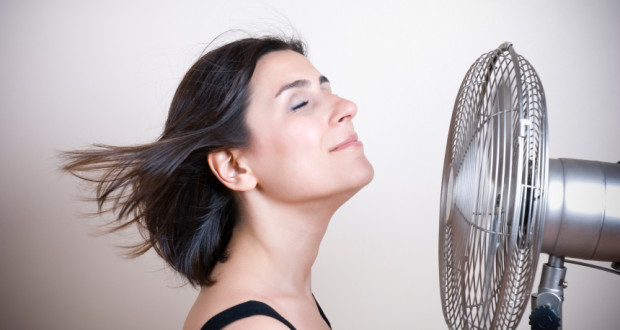Published: May 28, 2014
Hot Flashes, Night Sweats– Are the most common symptoms of menopause affecting about 75% to 85% or women.
Night sweats are merely hot flashes that occur during your sleep. This may cause an interference with your sleep and create feelings of irritability and fatigue.
They feel like a sudden, transient sensation of warmth that creates flushing or redness to your face and chest.
Oftentimes hot flashes are accompanied by increased heart rate (palpitations); and are followed by chills. Hot flashes and night sweats can be more severe and may start immediately after surgical menopause.
The causes of hot flash results from lowered levels of estrogen levels.
Some factors that can trigger a hot flash include: hot spicy foods, hot beverages, alcohol, caffeine and stress.
There is a higher incidence of hot flashes if you smoke.
There’s no predicting how long hot flashes will last. Some women have them for 3-5 years, while others continue to have hot flashes long past menopause.
Some tips for managing hot flashes:
- Watch your diet – limit alcohol, caffeine and spicy foods
- Stop smoking (nicotine increases hot flashes)
- Stay cool by wearing layered clothing or natural fibers; use a fan
- Exercise which improves circulation, raises endorphin levels and helps to promote better sleep
- Reduce stress levels
- Talk to your clinician and discuss treatment options for moderate to severe hot flashes if they are affecting your quality of life
Consider a combination of several options that can most likely provide the greatest symptom relief, including a healthy diet and exercise, managing stress and any other recommendations your clinician provides.
 Red Hot Mamas In Charge of Change.
Red Hot Mamas In Charge of Change.

